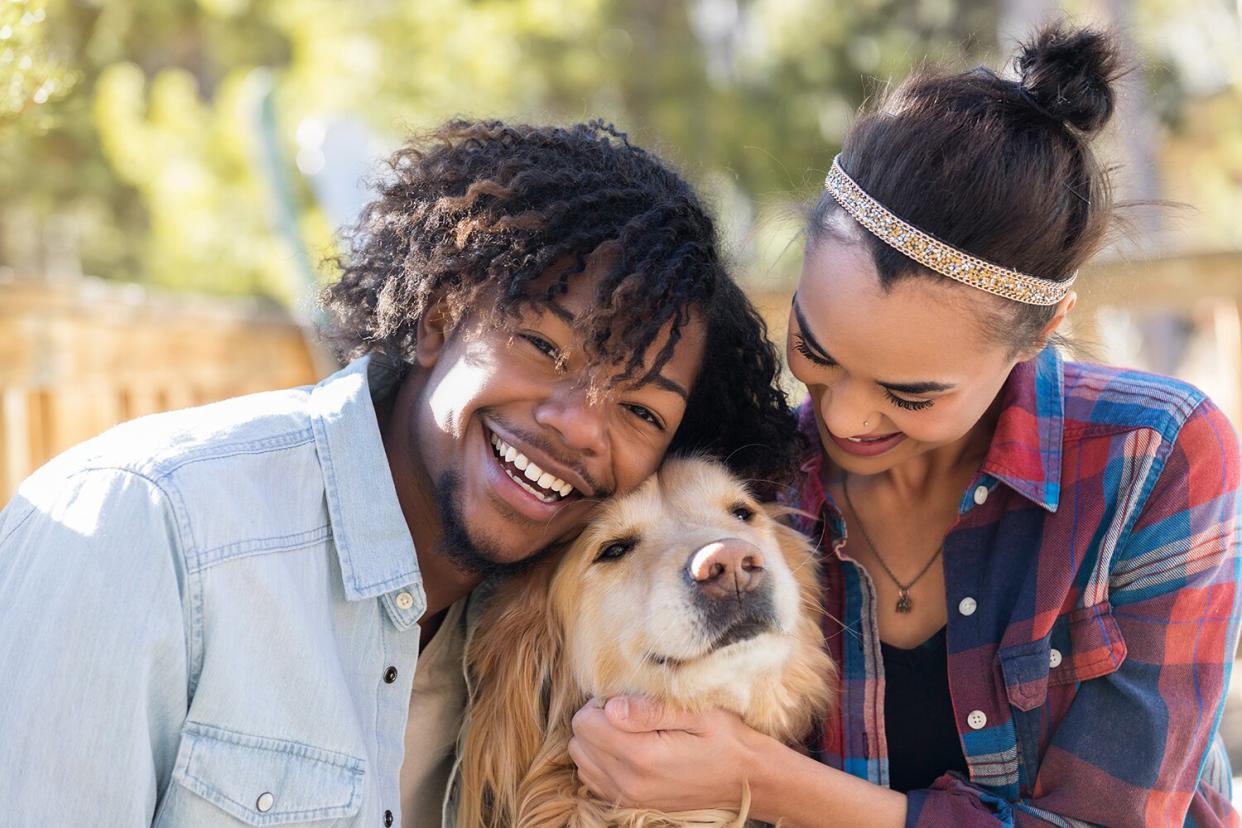Dog Cuddles Help People Feel More Sociable and Less Stressed, Study Finds

Getty
Days after researchers found that dogs can sniff out stress, other scientists discovered a new way canines help combat anxiety.
Dog cuddle sessions make people more sociable, reveals new research.
Watching, feeling, and touching canines can boost neurons in the prefrontal cortex — the area of the brain that helps regulate emotional interactions, according to SWNS.
Learning more about how dogs help people cope with stress and depression could lead to the development of better treatments and have implications for animal-assisted clinical therapy.
The snuggly study, published in the journal PLOS One, found the positive effect persists after the dogs are no longer present but are reduced when the pets are replaced with stuffed animals
"The present study demonstrates prefrontal brain activity in healthy subjects increased with a rise in interactional closeness with a dog or a stuffed animal, but especially in contact with the dog the activation is stronger," the study's lead author, Rahel Marti of the University of Basel, Switzerland, told SWNS.
RELATED: Dogs Can Smell When Humans Are Stressed Out, Study Finds
"This indicates that interactions with a dog might activate more attentional processes and elicit stronger emotional arousal than comparable non-living stimuli," she added.
In the study, activity in the brain's prefrontal cortex was non-invasively measured with neuroimaging technology in 19 men and women.
The participants wore a skull cap with sensors that shone infrared light into their brains as they viewed a dog, reclined with a pooch against their legs, or spent time petting a canine.
Each condition was also performed with Leo, a stuffed lion. The plush's fur was filled with a water bottle to match the temperature and weight of the live dogs used in the study.
Results showed prefrontal brain activity was more significant when participants interacted with the real dogs.
RELATED: Ohio Middle School Facility Dog Gets Her Own Adorable Yearbook Photo: 'She Brings Happiness'
"This difference was largest for petting, which was the most interactive condition," Marti said of the study.
Another key finding was that prefrontal brain activity increased each time people interacted with the real dog. Increases were not observed with subsequent interactions with the stuffed lion, indicating that the response might be related to familiarity or social bonding.
"They are clinically relevant for patients with deficits in motivation, attention, and socio-emotional functioning," Marti said in a dog's benefits to well-being.
"Integrating animals into therapeutic interventions might therefore be a promising approach for improving emotional involvement and attention," she added.

 Yahoo Movies
Yahoo Movies 
